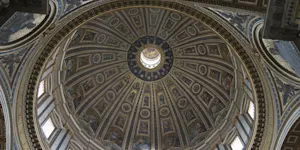What Makes This Word Tick
"Epiphany" is a word brimming with illumination. It's one of those delightful terms that captures the sudden, often life-changing realization one might have — when the clouds part, and something just clicks in your mind. It’s a moment when you see things in a new, possibly brighter light, and understand something at a deeper level.
If Epiphany Were a Person…
Imagine Epiphany as an eccentric professor with a penchant for spontaneous lectures on life's mysteries. They would have a twinkle in their eye, an endless curiosity, and a knack for making complex ideas seem astonishingly simple. Always ready to spark an "aha!" moment, they'd be the fun yet wise companion on any intellectual journey.
How This Word Has Changed Over Time
Originating from the Greek 'epiphaneia,' meaning "appearance" or "manifestation," "epiphany" has evolved from its early religious contexts to encapsulate secular discoveries or realizations. Originally, it referred to a divine manifestation but now mirrors those enlightening moments anyone can experience.
Old Sayings and Proverbs That Use Epiphany
While few traditional proverbs specifically mention "epiphany," the spirit of it dances through many wisdoms like "light dawns on Marblehead" or the good old "seeing the light," capturing that sense of enlightenment.
Surprising Facts About Epiphany
Historically, the Epiphany isn't just a personal revelation but also a Christian feast day celebrated on January 6th, marking the revelation of Christ to the Gentiles. It's fascinating how a word can hold both personal discovery and communal celebration, isn't it?
Out and About With This Word
In everyday vernacular, "epiphany" might pop up in conversations where someone describes a life-altering moment. You'll often find it basking in the warmth of coffee chats, book club debates, or any setting ripe for realization and reflection.
Pop Culture Moments Where Epiphany Was Used
Countless TV shows and movies have that classic scene where a character experiences an epiphany. From "House" to "The Matrix," these moments are pivotal, often accompanied by dramatic music or slow-motion cinematography to accentuate the moment of clarity.
The Word in Literature
Authors revel in "epiphany," especially those who thrive on inner monologue and complex character arcs. James Joyce was particularly fond of epiphanies in his writing, using them as pivotal points in works like "A Portrait of the Artist as a Young Man."
Moments in History with Epiphany
Think of Isaac Newton and his apple — a quintessential epiphany moment epitomizing the spirit of the word. History is peppered with stories of sudden insights that changed the course of our understanding of the world.
This Word Around the World
In some cultures, an epiphany might be described with different metaphors; in Japan, for example, the concept of ‘satori’ marks a moment of awakening. Such linguistic diversity shows the universal human experience of realizing something profound.
Where Does It Come From?
The linguistic roots of "epiphany" stretch back to the Greek 'epiphaneia,' meaning "manifestation" or "appearance." Its journey into English around the 14th century retains that sense of revealing or illuminating.
How People Misuse This Word
Some might use "epiphany" when they simply mean a good idea or a solution to a problem. True epiphanies go beyond that — they are deeper, almost spiritual in nature, offering transformative insight rather than just a fleeting thought.
Words It’s Often Confused With
Revelation: Both involve discovery, but a revelation is more about being shown something new.
Insight: While an epiphany is a type of insight, not all insights carry the depth or sudden nature of an epiphany.
Additional Synonyms and Antonyms
Synonyms for "epiphany" include realization, enlightenment, and insight. Antonyms might be ignorance or misunderstanding, reflecting the absence of understanding that an epiphany rectifies.
Want to Try It Out in a Sentence?
"During her morning walk, Susan had an epiphany about what truly mattered to her, and it changed her outlook on life forever."
















